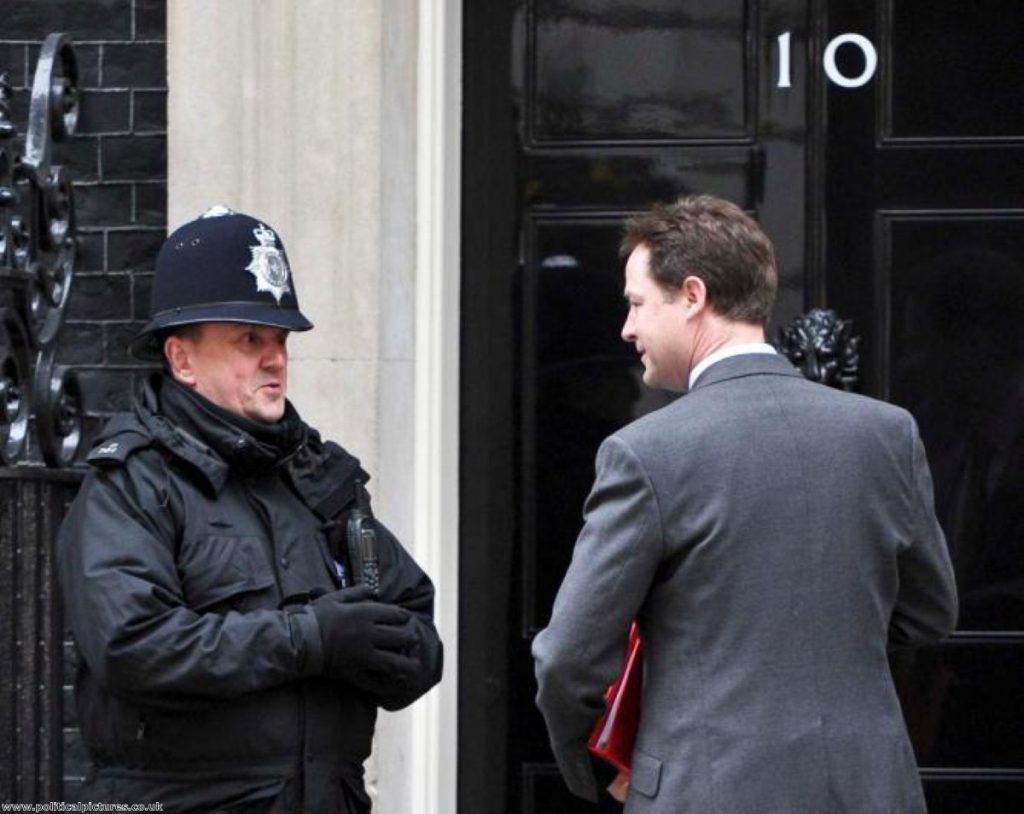Clegg’s big election pitch: We’re keepin’ it real
Nick Clegg will paint his party as pragmatic occupiers of the centre-ground in a major speech on Monday setting out the Liberal Democrats' platform for the 2015 general election.
The deputy prime minister, facing single-figure poll ratings and a potential electoral wipeout at the next election, will make the case once more for his party almost five years to the day since he beat Chris Huhne to the Lib Dem leadership.
Clegg will argue the Lib Dems play a vital role in the coalition by keeping David Cameron's Conservatives grounded in reality – as opposed to the "fantasy world" in which leading Tory eurosceptics, among them Iain Duncan Smith, believe Britain can prosper from outside the European Union.
"The Tory right dreams of a fantasy world where we can walk away from the EU but magically keep our economy strong; where we can pretend that the world hasn't moved on and stand opposed to gay marriage; where we can refuse to accept the verdict of the British people and pretend the Conservatives won a majority of their own," the Lib Dem leader is expected to say.


He will argue the Lib Dems have matured as a party of government, having been forced to "live with a host of invidious choices".
"If you want to protect welfare as well, you've got to accept that you'll end up gutting the crime budget, or the business budget, or local government," he is set to add. "We get that now."
There are still nearly two-and-a-half years until the next general election, but the coalition is expected to move to a new phase as both the Lib Dems and the Tories begin the process of 'policy differentiation'.
Whereas Cameron is likely to downplay the impact the Lib Dems have had on government, the Lib Dems are set to make the most of divisions in Cabinet to demonstrate they have made a real difference.
Clegg will add: "It is at times like these that Britain needs a party rooted in the centre ground, which anchors the country there. The Liberal Democrats are that party."
Last week the deputy prime minister announced the coalition would undertake a midterm review in the new year. The move had been called for by experts as early as the Queen's Speech this spring, but is now materialising at the last possible moment.
“Implementation of important reforms passed in the first parliamentary term (2010-12) will take up a significant proportion of the Coalition’s energy over the next two and a half years but the Government already recognises the need for action on economic growth, banking reform, adult social care, young people and families policy, local government finance, party funding and more.
Akash Paun, senior researcher at the Institute for Government think-tank, said the relevance of the original coalition agreement had waned over time. New policies like reforms to the NHS and the House of Lords have struggled because they were not in the original agreement, he suggested.
"The midterm review should be clearer than the original programme about prioritisation and should outline progress to date as well as look forward and include an action plan and timeline for implementing remaining and new pledges," Paun said.
"Implementation of important reforms passed in the first parliamentary term will take up a significant proportion of the coalition's energy… but the government already recognises the need for action on economic growth, banking reform, adult social care, young people and families policy, local government finance, party funding and more."
A new coalition deal would significantly increase the chances of the government making it through its self-appointed five-year term, despite a number of ongoing disputes between Tory right-wing backbenchers and Clegg's MPs.
Moves towards a British bill of rights and gay marriage are proving particularly controversial at present, while Clegg's initial support for Ed Miliband's view on Lord Justice Leveson's press regulation recommendations have riled senior Tories in government.

